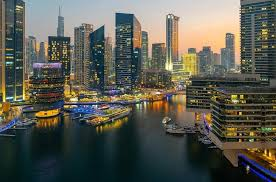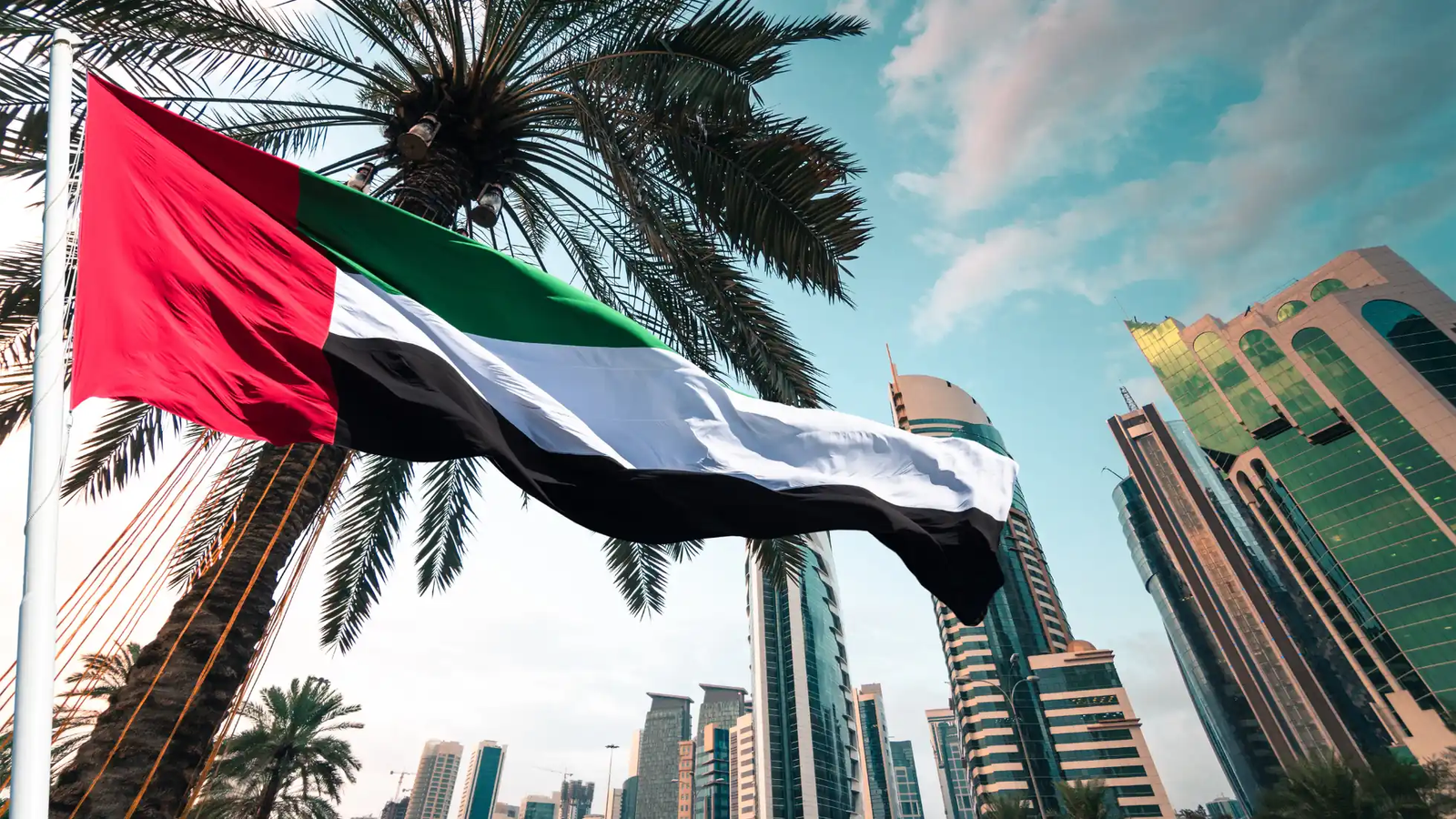Now Reading: Abu Dhabi Real Estate: 6 Corporate Tax Insights Every Buyer Needs in 2025
-
01
Abu Dhabi Real Estate: 6 Corporate Tax Insights Every Buyer Needs in 2025
Abu Dhabi Real Estate: 6 Corporate Tax Insights Every Buyer Needs in 2025

Table of Contents
Abu Dhabi’s real estate market, valued at AED 96.2B in 2024 (28,249 transactions, 24.2% YoY growth), remains a global investment hub in 2025, driven by zero personal income tax, zero capital gains tax, 100% foreign ownership in freehold zones, and Golden Visas (AED 2M+).
The introduction of a 9% corporate tax (effective June 2023, on profits above AED 375K) and the Domestic Minimum Top-up Tax (DMTT, effective January 2025 for MNEs with €750M+ global revenue) affects corporate buyers and investment structures like Real Estate Investment Trusts (REITs), but individual investors benefit from tax exemptions on rental income and capital gains.
With AED 25.3B in Q1 2025 transactions (34.5% YoY growth) and 85% absorption, key areas like Al Reem Island, Yas Island, and Saadiyat Island offer properties (AED 750K–8.98M) with 6–9% ROI and 6–12% appreciation by 2028.
Infrastructure like Etihad Rail (Q4 2025) and tourism growth (1.2M Yas visitors in 2024) further boost demand. This guide provides six corporate tax insights critical for buyers, backed by 2024–2025 data.
1. Individual Buyers Face No Income or Capital Gains Tax
- Insight: Individual buyers in Abu Dhabi are exempt from personal income tax, capital gains tax, and inheritance tax on real estate investments, making it highly tax-efficient for personal ownership. This applies to residential properties (e.g., apartments, villas) and rental income, whether short-term (e.g., Airbnb) or long-term.
- Details: Properties in Al Reem Island (apartments AED 1M–3M), Yas Island (villas AED 4M–8.98M), and Saadiyat Island (apartments AED 2M–4.45M) yield 6–9% ROI (rentals AED 44K–188K/year). No annual property tax applies, unlike many global markets (e.g., UK’s council tax or US property tax). Only a one-time transfer fee (2%, split equally between buyer and seller) and registration fees (AED 2K–4K) are payable.
- Impact for Buyers: Individuals can retain full rental income (e.g., AED 143K/year for Al Raha Beach apartments) and capital gains (e.g., 10–12% for Yas Island villas by 2028) without tax erosion. Ideal for buy-to-let investors and Golden Visa seekers (AED 2M+ for 10-year visa).
2. Corporate Tax (9%) Applies to Businesses, Not Individuals
- Insight: A 9% corporate tax, effective June 2023, applies to businesses with taxable profits above AED 375K, including those engaged in real estate management, development, or brokerage. Individual buyers holding properties personally are exempt, but corporate entities (e.g., LLCs, REITs) must comply.
- Details: Taxable entities include UAE-incorporated companies, foreign entities with a permanent establishment, or those managed in the UAE. Real estate income from licensed business activities (e.g., property trading) is taxable. For example, a developer selling off-plan units (e.g., Yas Bay, AED 2.02M average) incurs 9% tax on profits above AED 375K. Filing deadlines are September 30, 2025, for 2024 fiscal years. Records must be kept for seven years.
- Impact for Buyers: Corporate buyers should hold properties as individuals to avoid 9% tax. For businesses, deduct allowable expenses (e.g., maintenance, marketing) to reduce taxable income. Consult tax advisors like Hawksford or Crowe UAE for compliance.
3. Free Zone Benefits for Qualifying Entities
- Insight: Qualifying Free Zone Persons (QFZPs) in Abu Dhabi’s free zones, like Abu Dhabi Global Market (ADGM) on Al Reem Island, can enjoy a 0% corporate tax rate if they meet specific criteria, enhancing tax efficiency for corporate buyers.
- Details: QFZPs must conduct qualifying activities (e.g., real estate management, logistics) within the free zone, maintain economic substance, and avoid mainland transactions unless strategic (e.g., manufacturing). Al Reem Island’s ADGM offers up to 50 years of 0% corporate tax, driving 25% rental growth and 24% capital appreciation in 2023–2024. Properties (e.g., Pixel, AED 1M–3M) yield 6–8% ROI (rentals AED 120K/year).
- Impact for Buyers: Corporate buyers should structure operations within ADGM to qualify as QFZPs, ensuring 0% tax on real estate income. Verify compliance with Federal Tax Authority (FTA) rules via advisors like AM Audit. Ideal for REITs or property management firms.
4. REITs Offer Tax-Efficient Investment Structures
- Insight: Real Estate Investment Trusts (REITs) in Abu Dhabi, regulated by the Emirates Securities and Commodities Authority (SCA), can be exempt from corporate tax if structured correctly, offering tax-efficient exposure to properties like Saadiyat Lagoons (villas AED 8.98M).
- Details: REITs pooling investor funds for income-producing real estate (e.g., Al Maryah Vista 2, AED 2M apartments) qualify for 0% corporate tax if they meet FTA criteria: licensed by SCA, externally audited, and distributing 90%+ of income as dividends. Non-compliant REITs face 9% tax on profits above AED 375K. In 2025, REITs in ADGM (e.g., Al Reem Island) attract HNWIs with 6–8% ROI.
- Impact for Buyers: Invest in SCA-compliant REITs to access tax-exempt real estate income. Verify REIT governance and distribution policies with advisors like Mosaic Chambers. Ideal for passive investors seeking diversified, tax-efficient returns without direct property ownership.
5. DMTT Impacts Large MNEs from January 2025
- Insight: The Domestic Minimum Top-up Tax (DMTT), effective January 2025, targets multinational enterprises (MNEs) with global revenues of €750M+ in at least two of the prior four years, ensuring a 15% minimum effective tax rate under OECD’s Pillar Two rules.
- Details: MNEs with real estate operations in Abu Dhabi (e.g., developers like Aldar managing Yas Acres, AED 6.52M villas) may face DMTT if their effective tax rate falls below 15%. This applies to entities in free zones or mainland. Smaller firms and individual buyers are unaffected. Compliance requires registration with the FTA and filing by September 30, 2025, for 2024 fiscal years.
- Impact for Buyers: Large corporate buyers must assess DMTT exposure with tax consultants (e.g., KPMG UAE) to optimize structures. Individual buyers and SMEs are exempt, making personal ownership more tax-efficient for properties like Al Ghadeer apartments (AED 750K–1.5M, 7–8% ROI).
6. Transaction Fees and VAT Considerations
- Insight: Abu Dhabi’s real estate transactions incur a 2% transfer fee (split equally between buyer and seller) and registration fees (AED 2K–4K), but residential properties are VAT-exempt. Commercial properties and new residential builds incur 5% VAT.
- Details: For example, buying a Yas Island villa (AED 6.52M) incurs a 1% buyer transfer fee (AED 65.2K) and AED 4K registration fee. Residential rentals (e.g., Al Raha Beach, AED 143K/year) are VAT-exempt. Commercial properties in the Central Business District (5–7% ROI) face 5% VAT on sales or leases unless zero-rated in free zones like ADGM.
- Impact for Buyers: Budget for transfer and registration fees (AED 2K–4K + 1% of property value). Avoid 5% VAT by investing in residential properties or free zone commercial assets. Use RERA-registered brokers like dubizzle for cost transparency. Ideal for cost-conscious buyers targeting Al Reef or Khalifa City (apartments AED 44K–120K/year rent).
Market Trends and Outlook for 2025
- Yields and Appreciation: Properties offer 6–9% ROI (apartments 7–8%, villas 6–9%) and 6–12% appreciation by 2028, driven by AED 25.3B in Q1 2025 transactions and 15% rental growth. Luxury areas (Yas Island, Saadiyat Island) see 10–12% villa price growth, affordable areas (Al Ghadeer, Al Reef) 6–8%.
- Tax Efficiency: Zero personal income tax, capital gains tax, and inheritance tax maximize individual returns. Corporate buyers face 9% tax (or 0% for QFZPs) and potential DMTT for MNEs, making personal ownership preferable for most investors.
- Infrastructure Impact: Etihad Rail (Q4 2025) reduces travel times (e.g., Abu Dhabi–Dubai to 57 minutes), boosting values by 10–15%. Airport expansions and ADREC’s transparency (top 5 in JLL’s 2024 GRETI) enhance investor confidence.
- Investor Drivers: 125% YoY FDI growth (AED 7.86B in 2024), 100% foreign ownership, and Golden Visas drive 70% of demand. GCC (20%), European (19%), and South Asian (17%) buyers dominate.
- Risks: Oversupply (3,004 units delivered in 2024, 46% below forecasts) and off-plan delays pose a 10% correction risk in H2 2025. Mitigated by 85% absorption, ADREC oversight, and escrow accounts. AML compliance (KYC) adds scrutiny.
- Regulatory Framework: ADREC ensures transparency with 2% transfer fees (50% expo discounts). Freehold zones allow inheritance rights. Escrow laws protect off-plan investments (e.g., Saadiyat Cultural District, AED 4.45M apartments).
Investment Strategy
- Diversification: Combine Al Reem Island (apartments AED 1M–3M) for balanced returns, Yas Island (villas AED 4M–8.98M) for luxury rentals, and Al Ghadeer (apartments AED 750K–1.5M) for affordable investments. REITs offer passive, tax-efficient exposure.
- Entry Points: Off-plan apartments (e.g., Yas Bay, AED 2.02M) offer 8–10% gains by 2026–2027. Ready villas (e.g., Saadiyat Lagoons, AED 8.98M) suit immediate rental income seekers (AED 188K/year).
- Tax Optimization: Hold properties as individuals to avoid 9% corporate tax and DMTT. Invest in ADGM-based REITs for 0% tax. Deduct expenses (e.g., renovations) for corporate entities to lower taxable income. Consult advisors like Hawksford or KPMG UAE.
- Process: Verify freehold status via ADREC. Pay 2% transfer fee and AED 2K–4K registration fees. Secure No Objection Certificate (NOC). Use RERA-registered agents and platforms like dubizzle or Property Finder. Required documents: passport copy, proof of income, no UAE visa needed. Documents must be translated into Arabic and legalized if in another language.
Conclusion
In 2025, Abu Dhabi’s real estate market offers tax-smart opportunities with zero personal income tax, zero capital gains tax, and 100% foreign ownership in freehold zones like Al Reem Island, Yas Island, and Saadiyat Island. Corporate buyers must navigate the 9% corporate tax and DMTT (for MNEs), but QFZPs in ADGM and compliant REITs enjoy 0% tax.
Properties (AED 750K–8.98M) yield 6–9% ROI and 6–12% appreciation by 2028, backed by AED 96.2B in 2024 transactions and infrastructure like Etihad Rail. Despite a 10% correction risk, 85% absorption and ADREC’s oversight ensure stability. Explore opportunities via Property Finder, dubizzle, or developers like Aldar to maximize tax-efficient returns in Abu Dhabi’s booming real estate market. Abu Dhabi Corporate Tax
read more: UAE Real Estate: 7 Tax-Smart Zones Across Emirates to Invest In 2025






















